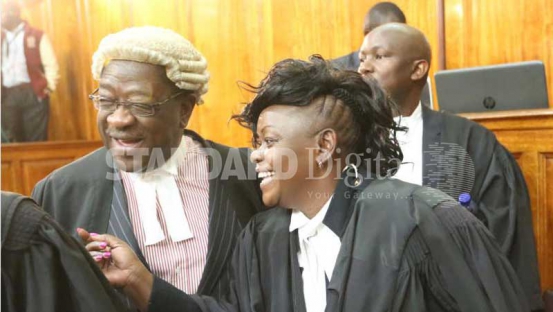×
The Standard e-Paper
Kenya’s Boldest Voice

The Supreme Court (Monday) gave Raila Odinga an opportunity to prove that 14,000 defective forms representing over 7 million votes were used to deny him the presidency.
A unanimous decision by the seven judges to allow Mr Odinga and his running mate Kalonzo Musyoka to scrutinise election materials used during the presidential election marked the first victory for the National Super Alliance (NASA) in its quest to prove that the August 8 election was marked by massive irregularities.